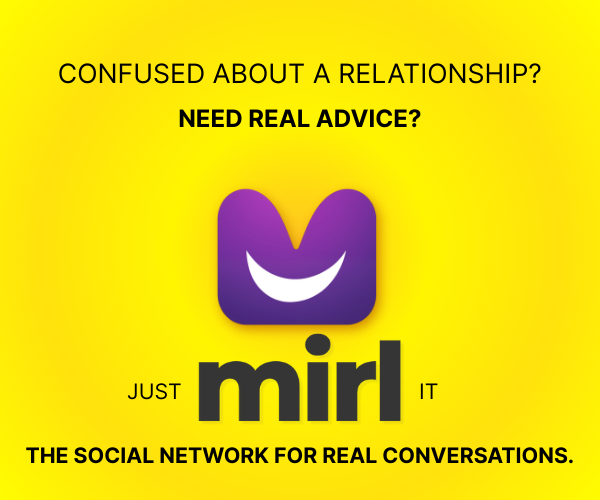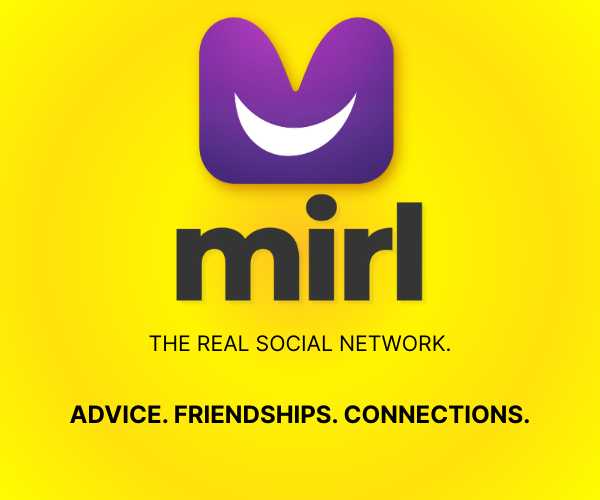How to Speak Clearly: 30 Secrets, the Psychology & Hacks to Master It

Are you afraid to give speeches? Speaking in public is a very common fear. But if you learn how to speak clearly, then it will make you more confident.
Speaking in front of people is terrifying, regardless of how many people listen to you. So, if nerves always seem to creep into what you say, once you learn how to speak clearly, it will make all the difference and take you far in life.
Honestly, not only is it traumatic for you, but it’s also unpleasant for people listening if you forget your lines, stutter, speak quickly, or mumble. [Read: The top 20 ways to stop feeling like an imposter in your own life]
The Psychology of Public Speaking Anxiety
Ever wondered why, despite being able to chat up a storm in a coffee shop, the thought of speaking in front of a group can make your palms sweat and your heart race? It’s a bit ironic, isn’t it?
We’ve been speaking since we could barely toddle, yet put us in front of a crowd, and it’s like we’ve forgotten how to string a sentence together.
So, what’s the deal with public speaking anxiety, and how can understanding it help us learn how to speak clearly in front of an audience? [Read: Fear of rejection – 56 signs, causes, and ways to overcome and get over it]
First off, let’s talk about Glossophobia. Sounds like a fear of glossy photos, but it’s actually the fancy term for speech anxiety. It’s a social phobia that’s more common than you’d think.
It’s not just about the fear of tripping over your words; it’s deeply rooted in the fear of judgment. We’re social creatures, and the idea of being evaluated *and possibly rejected* by our peers can trigger our ‘fight or flight’ response.
That’s biology’s not-so-funny way of preparing us for danger, even if the only ‘danger’ is forgetting your speech or making a grammar goof. [Read: How to be fearless – 18 ways to set aside fear and live like a champion]
Then there’s the spotlight effect. This isn’t about your brief moment of fame under a literal spotlight. It’s the psychological phenomenon where we believe we’re being noticed and scrutinized more than we actually are.
Think of it as your brain convincing you that every slip-up will be remembered by your audience forever, like some sort of epic speech blunder Hall of Fame.
And let’s not forget the fear of negative evaluation. [Read: How to explain anxiety to someone you love and do it fearlessly]
This is your brain’s tendency to go, “What if they think I’m boring? What if I make no sense?” It’s like having a pesky inner critic that’s hell-bent on undermining your confidence.
Understanding these psychological quirks is the first step in learning how to speak clearly in public settings.
It’s not just about mastering the art of enunciation; it’s about grappling with these internal fears and realizing that, hey, maybe the audience isn’t waiting with pitchforks for you to mess up. [Read: 5 Lessons to deal with judgmental people]
Why Clear Speech Matters
Let’s pause for a moment and ponder why clear speech is such a big deal.
In our everyday conversations, we might not always notice how crucial it is to articulate our words, but when it comes to speaking in front of others, be it at a wedding or a presentation, the clarity of our speech takes center stage.
It’s not just about being heard; it’s about being understood, making an impact, and connecting with our audience. [Read: How to broaden your horizons and get out of your comfort zone for good]
1. Reduces Miscommunication
Clear speech is essential for effective communication. It ensures that your message is understood as intended, reducing the chances of misinterpretation. This is crucial in both personal and professional settings.
2. Enhances Audience Engagement
When you speak clearly, your audience is more likely to stay engaged. Research in communication studies shows that clear articulation helps maintain audience attention and interest, leading to better understanding of the message.
3. Boosts Perceived Confidence
Speaking clearly can significantly impact how confident you appear. Studies in social psychology have found that clear, articulate speakers are often perceived as more confident and competent. [Read: 55 Secrets and self-love habits to build confidence and realize your worth]
4. Improves First Impressions
First impressions are vital, and clear speech plays a key role. Research indicates that people who articulate well are often viewed more positively, making a lasting impression.
5. Aids in Persuasion
Clear speech is a powerful tool in persuasion. According to studies in rhetoric and communication, clarity in speech enhances the speaker’s ability to persuade and influence their audience.
6. Builds Trust
Articulating words correctly can enhance your credibility and build trust with your audience. [Read: How to respect yourself – 37 secrets of self-respect, self-belief, and self-love]
This is supported by findings in social psychology, where clear communication is linked to increased trustworthiness.
7. Enhances Professional Image
In professional settings, clear speech is linked to a positive professional image. Studies in occupational psychology suggest that articulate speech can influence career perceptions and opportunities.
8. Facilitates Better Social Interaction
Clear speech improves social interactions and networking. [Read: 33 Easy ways to meet new people and widen your social circle effortlessly]
Communication studies show that clear articulation makes individuals more approachable and facilitates easier interaction in social settings.
9. Bridges Linguistic Gaps
Clear speech helps in overcoming barriers posed by accents and dialects, ensuring your message reaches a wider audience. Linguistic research supports the idea that clear articulation is crucial for effective cross-cultural communication.
10. Reflects Authenticity and Emotion
Finally, clear speech allows for better expression of your personality and emotions. [Read: 45 Secrets to be more positive and fill your mind with positive emotions 24/7]
Psychological research on emotional intelligence suggests that clear communication is key to accurately conveying one’s feelings and intentions.
How to Speak Clearly
But it doesn’t mean that just because you’re not a good speaker doesn’t mean it’s the end of the road for you. Work on your public speaking skills and improve the way you speak in front of people.
Sure, you’ll encounter bumps in the road, but, with practice, you become a more fluent and confident speaker. [Read: 5 Powerful steps to break out of your comfort zone]
So, this is why you’re here, let’s get you going on the path to speaking clearly. It’ll take some practice, but you can do it!
1. Why Are You Having Problems Speaking?
Is it nerves? Is it that you don’t know what you’re talking about? Figure out why you have problems speaking clearly.
It could just be you’re having issues pronouncing specific letters which is easy to fix once you know that that’s the problem. So, when speaking, be aware of the problems you have. [Read: Recognize the triggers of nervous sweating and stop them]
2. Calm Your Nerves
Speaking is a nerve-wracking experience. Take a sip of warm water, hold a small object in your hand while speaking. Calm your anxiety before speaking. It helps you to speak slowly and more clearly.
When you’re nervous, it increases your speed, you stutter and then your anxiety is amped up even more. [Read: 7 instant hacks to calm yourself down]
3. Take Time to Think Before You Speak
When we rush through our thoughts, we don’t take the time to process what we’re going to say and prepare ourselves. By thinking about what you want to say, you’re able to plan your words out, preventing the chances of you slipping up.
You can rehearse them in your head which even helps with your pronunciation.
4. Practice Regularly
You need to practice. Doing this once isn’t going work. [Read: 36 Secrets to motivate yourself to achieve anything your heart desires]
To improve your speech, this is going to be a long-term process. You’re not going to be speaking like a celebrity overnight, this is going to take months and months of practice.
But that’s the point, you’re going to need to practice daily, at least for five minutes with tongue twisters.
5. Warm Up the Voice
When you go from not speaking to suddenly reciting a speech, it affects the way you speak. You need to warm up your voice. When your voice isn’t warm, your vocal cords can easily become irritated and inflamed which cause issues when you’re speaking.
Hum for a couple minutes before speaking and drink warm water. This relaxes your vocal cords. [Read: 16 powerful secrets of self-improvement you can’t ignore]
6. Stand in Front of the Mirror
This is the best way to see how you speak. You need to look at yourself in the mirror. It could be that you don’t open your mouth wide enough on certain vowels which causes you to mumble, but you don’t know until you see yourself speak.
7. Record Yourself
When speaking, you’re not actually hearing yourself how people hear you. So, I recommend you record yourself speaking. Record yourself with tongue twisters or the speech you’re going to give.
Then, listen to it out loud, you’ll be able to see where you go wrong. Then, re-record yourself and hear the improvement. [Read: 37 Secrets to read people by their body language and expressions instantly]
8. Know Where to Breathe
You may not have thought about it but your breathing is extremely important when it comes to speaking. Breathing is the engine of the voice, it’s what fuels your sound. So, breathe through your stomach rather than your chest.
This takes some practice as many of us are used to breathing through shallowly through the chest.
9. Don’t Take a Slip Up as a Failure
You’re going to make mistakes even when you think you’ve perfected your speech, this is normal. But what you shouldn’t do is see it as a failure. [Read: 5 reasons why you shouldn’t be afraid to fail]
When it comes to learning how to speak clearly, don’t let small slip-ups prevent you from progressing with your ability to speak clearly.
10. Work on Self-Confidence
Your ability to speak clearly is highly tied to your confidence. You need to believe that you speak clearly and fluently.
If you don’t believe in yourself or what you want to say, that’s going to come across when you speak. Look within and trust yourself with what you’re going to say. [Read: High self-esteem – 31 low signs, what hurts self-worth, and secrets to pump it]
11. Practice in Font of Friends or Family
If you need a second opinion, practice your speech in front of friends or family that you trust. They’ll be able to tell you when you speed up or when you mumble.
If you’re not able to record, this is a great way to see what the issues are when you speak. [Read: 10 mind tricks to regain control over your life]
12. Avoid Slang and Jargon
When speaking in public or if you want to be understood better, the best thing you can do to speak clearly is to avoid jargon and slang.
Keep your speech clear and clean. It helps you avoid any slip-ups if you use proper English. In addition, you won’t confuse your audience when you speak in a way that everyone understands. [Read: 12 easy ways to avoid a first impression catastrophe]
13. Embrace Pauses
Embracing pauses in your speech is like giving your words room to breathe. Pauses allow your audience to absorb what you’ve said and anticipate what’s coming next.
They also give you a moment to gather your thoughts. Research in speech communication shows that strategic pauses can enhance speech clarity and audience comprehension.
14. Improve Your Posture
Good posture isn’t just for impressing at a job interview; it’s key for clear speech too. [Read: 30 Secrets to make a good first impression and impress anyone in minutes!]
Standing or sitting up straight opens up your diaphragm, allowing for better breath control which is crucial for clear articulation. A study in human physiology indicates that an upright posture improves lung capacity and vocal projection.
15. Enunciate Consonants
Focusing on consonants can sharpen your speech. Consonants give your words their crispness and clarity.
By emphasizing them slightly, you make your speech more intelligible. This technique is often used by actors and broadcasters to ensure their words are clearly understood. [Read: 30 Life-changing books to read in your 20s and reinvent your life]
16. Vary Your Pitch and Tone
A monotone voice can make even the most exciting topic sound dull. Varying your pitch keeps your audience engaged and helps emphasize important points.
Neuroscientific studies have found that variations in tone can affect the emotional impact of speech, making your message more memorable.
17. Use Gestures Effectively
Gestures can be a powerful tool in enhancing your speech. They not only help convey your message but also release tension, making you feel more relaxed. [Read: 10 Subtle body language moves to appear more confident]
According to research in nonverbal communication, effective use of gestures can improve the listener’s engagement and understanding of the speech.
18. Focus on Your Listener
Tailoring your speech to your listener can make a world of difference. Pay attention to their feedback, both verbal and nonverbal, and adjust accordingly.
This adaptability not only shows respect for your audience but also improves the clarity of your communication, as per findings in interpersonal communication studies. [Read: 19 Ways to be a much better listener in a relationship and read their mind]
19. Simplify Your Language
Simplicity is key. Using straightforward language makes your message more accessible to your audience.
It’s not about dumbing down your speech but about making it inclusive. This approach is especially important in diverse groups to ensure everyone can follow along.
20. Stay Hydrated
Last but not least, keep those vocal cords hydrated. [Read: 26 Secrets to get motivated to work out and exercise your way to a better life]
Drinking water before and during your speech keeps your voice smooth and prevents straining. A hydrated voice is a clear voice, as dehydration can lead to a hoarse and weak voice, hindering clear speech.
It Gets Better the More You Work on It
It might seem daunting at first, but every opportunity to speak in front of others is a chance to improve. [Read: 25 Must-know secrets to be successful in life and transform your future today]
Embrace these moments, not as hurdles, but as steppingstones toward becoming a more effective communicator.
The art of speaking clearly is a skill like any other – it gets better the more you work on it.
So, take the next opportunity to speak up. Practice the techniques discussed, be patient with your progress, and most importantly, enjoy the process of developing this valuable skill.
[Read: Butterflies in your stomach – 16 steps to control and calm them instantly]
In time, you’ll find that you’ve not only learned how to speak clearly, but you’ve also gained the confidence to express yourself effectively in any situation.


















